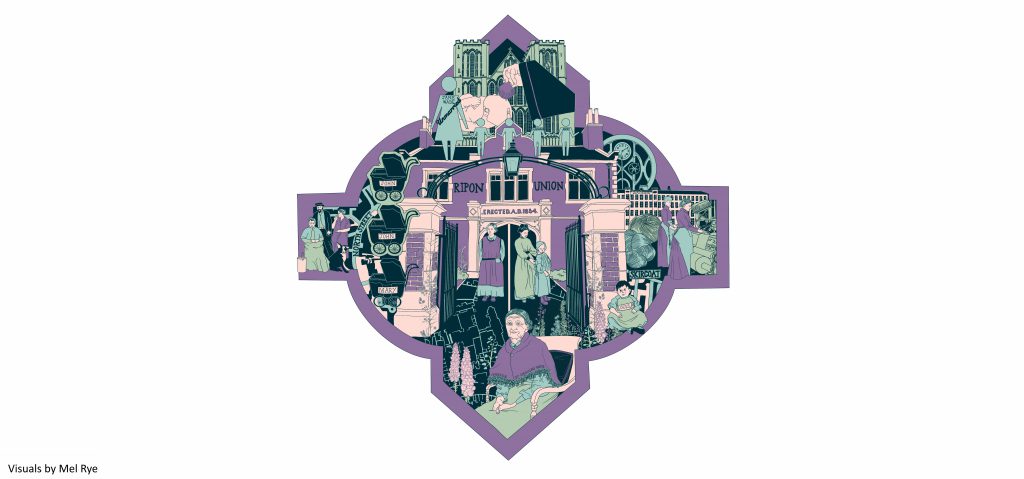Ripon Museum Trust volunteers from The Workhouse Museum have worked on a major new online exhibition presented by The Workhouse Network called More Than Oliver Twist and presented on the Google Arts & Culture platform.
The More Than Oliver Twist project set out to discover the real stories of people in the workhouse system through the 1881 census returns. Researched and interpreted by volunteer researchers at six sites across The Workhouse Network, the stories have been used to create an amazing online exhibition, with work from artists Morgan Tipping and Mel Rye, exploring six of these lives and the contemporary echoes of their historic experiences.
The immersive exhibition combines audio narrative and visualisations, enabling audiences to encounter the multidimensional lives of people then known as ‘paupers.’ The work is drawn directly from the research, museum collections, workhouse buildings, volunteers’ experiences and related contemporary lives.
Within the exhibition, audiences will find The Life of Hannah Wade, a creative interpretation of the life of an inmate at Ripon Union Workhouse, now Ripon Workhouse Museum and Garden.
Helen Thornton, Director of Ripon Museum Trust says: “We’re delighted to see the results of this project, which our volunteers worked incredibly hard on. The content that has been created is remarkable: moving, thought-provoking and central to what we are trying to do here – to use the past to consider more deeply the issues of today.”
Sharon Heal, Director of the Museums Association says: “This fantastic project brings the stories of people who lived and worked in workhouses alive. I was fascinated by the story of Louisa Ledger and her struggle, that many women past and present have faced, to raise her children against the odds. The contemporary reflections help us explore the lives of invisible people who would otherwise be forgotten and have special resonance as we live through a pandemic that is hitting those worst off in society hardest.”
The project has also created the largest database of poor individuals and families yet constructed to shed light on the diverse experience of the poor. The project created over 325 biographies of these everyday people who experienced hardship and support under the very first system of national welfare. This is the largest national database of biographies of people known at the time as “paupers”.
The project is funded by Arts Council England and supported by Nottingham Trent University and The National Archive.
This exciting new Google Arts & Culture platform is available here.
More information via The Workhouse Network website.
 Workhouse Museum
Workhouse Museum